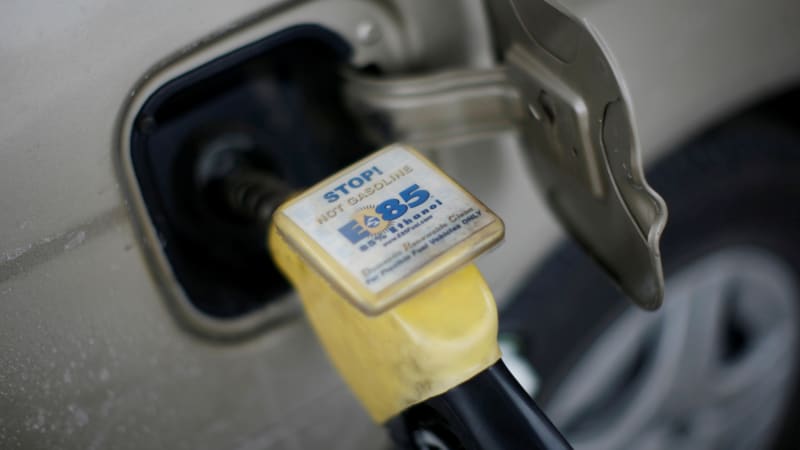
NEW YORK — The U.S. oil market is seeking to forge an alliance with the nation’s corn growers and biofuel producers to lobby versus the Biden administration’s thrust for electric powered cars, but is so much conference a interesting reception, in accordance to various resources acquainted with the discussions.
The work marks an uncommon endeavor by the petroleum sector to cozy up to its very long-time rivals, reflecting the scale of its issue over President Joe Biden’s sweeping steps to battle local weather improve and tamp down fossil fuel use.
Although the oil marketplace and biofuels producers are purely natural competitors for room in America’s gasoline tanks, they share a wish to be certain a future for inside combustion engines.
The exertion also displays the swiftly shifting political landscape in Washington: the oil industry’s after-mighty influence has waned since Biden changed Donald Trump as president, but the farm belt remains a very important and strong political constituency.
The American Fuel and Petrochemical Companies oil refining trade team verified it has been getting in touch with condition and countrywide reps of the corn and biofuel industries in the latest weeks to request help for a policy that would lessen the carbon-depth of transport fuels and block initiatives to supply federal subsidies for electric powered vehicles.
That proposal would be an substitute to Biden’s mentioned objective of electrifying the nation’s motor vehicle fleet and would assure a continuing sector for liquid fuels like gasoline and corn-primarily based ethanol.
AFPM met in mid-January with some corn and biofuel market lobbyists and some member refiners are hoping to host one more assembly in February to talk about the upcoming of liquid fuels.
“This whole notion was going to have to consider a entire whole lot of time to gel, but we have made some development,” explained Derrick Morgan, senior vice president at AFPM.
The industry’s drive to alter the program of electrical auto coverage faces huge headwinds: California has introduced a ban on interior combustion engines by 2035, other states are looking at related actions, and Typical Motors on Thursday introduced it will produce only electrical autos by then.
Geoff Cooper, head of the Renewable Fuels Affiliation, a foremost biofuel field trade group, verified RFA reps have been invited to take part in the February conference, but stated his organization experienced not still determined irrespective of whether to attend.
“We weren’t born yesterday and we are not heading to allow the oil industry engage in us like a fiddle,” he explained. “They have a extensive heritage of pushing surrogates and proxies to the microphone to do their dirty perform and we’re not interested in that.”
The Nationwide Corn Growers Affiliation is also contemplating whether to ship team the February discussion, according to two resources common with the make a difference.
NCGA CEO Jon Doggett informed Reuters no such conference had been scheduled, and distanced his team from the idea of an oil-corn alliance. “I have practically nothing to do with any refining groups. We haven’t talked,” he explained.
Requested if any of its condition-level member companies had been thinking about attending, Doggett replied, “We have dozens of groups. I can’t know what all of them are organizing.”
Sources explained the biofuel and corn market is hesitant to be part of with the oil sector on this issue not just because of its longstanding rivalry with refiners, but also mainly because it does not want to publicly oppose the strength insurance policies of the new president.
Whiplash in Washington
The refining sector liked a seat at the table underneath previous President Donald Trump, who was keen to bolster the oil and fuel sector.
Biden marks a complete reversal. He entered the White Home promising actions to restrain the oil marketplace, from pausing new drilling leases on general public lands to contemplating harder limits on emissions.
Biden this week pledged to obtain 645,000 electric powered cars and trucks for the federal government car fleet as element of a broader prepare to progress EVs through car procurement, infrastructure advancement and subsidies, threatening the multi-billion dollar gasoline market.
AFPM’s Morgan mentioned refiners are not worried of electric automobiles but dislike rigid government mandates. “What we have a dilemma with are significant-handed mandates that just take away shopper selection, possibly completely or in big portion. We don’t consider that is the appropriate way ahead,” Morgan stated.
The oil business believes carbon emissions from gas can be lessened by requiring enhanced octane information, which would make gasoline burn off cleaner. Ethanol is a preferred octane booster.
The U.S. Renewable Gas Conventional now calls for refiners to mix biofuels like ethanol into fuels. As a end result, most gasoline offered in the United States has about 10 per cent ethanol in it. The biofuel industry has been pushing hard to be certain those mandates proceed.
“It truly is no shock the oil industry all of a unexpected needs to give us a bear hug. We deliver lower carbon fuels. They will not,” said Emily Skor, head of the biofuel group Growth Electricity.
Reporting by Jarrett Renshaw and Stephanie Kelly Modifying by Richard Valdmanis and Dan Grebler
